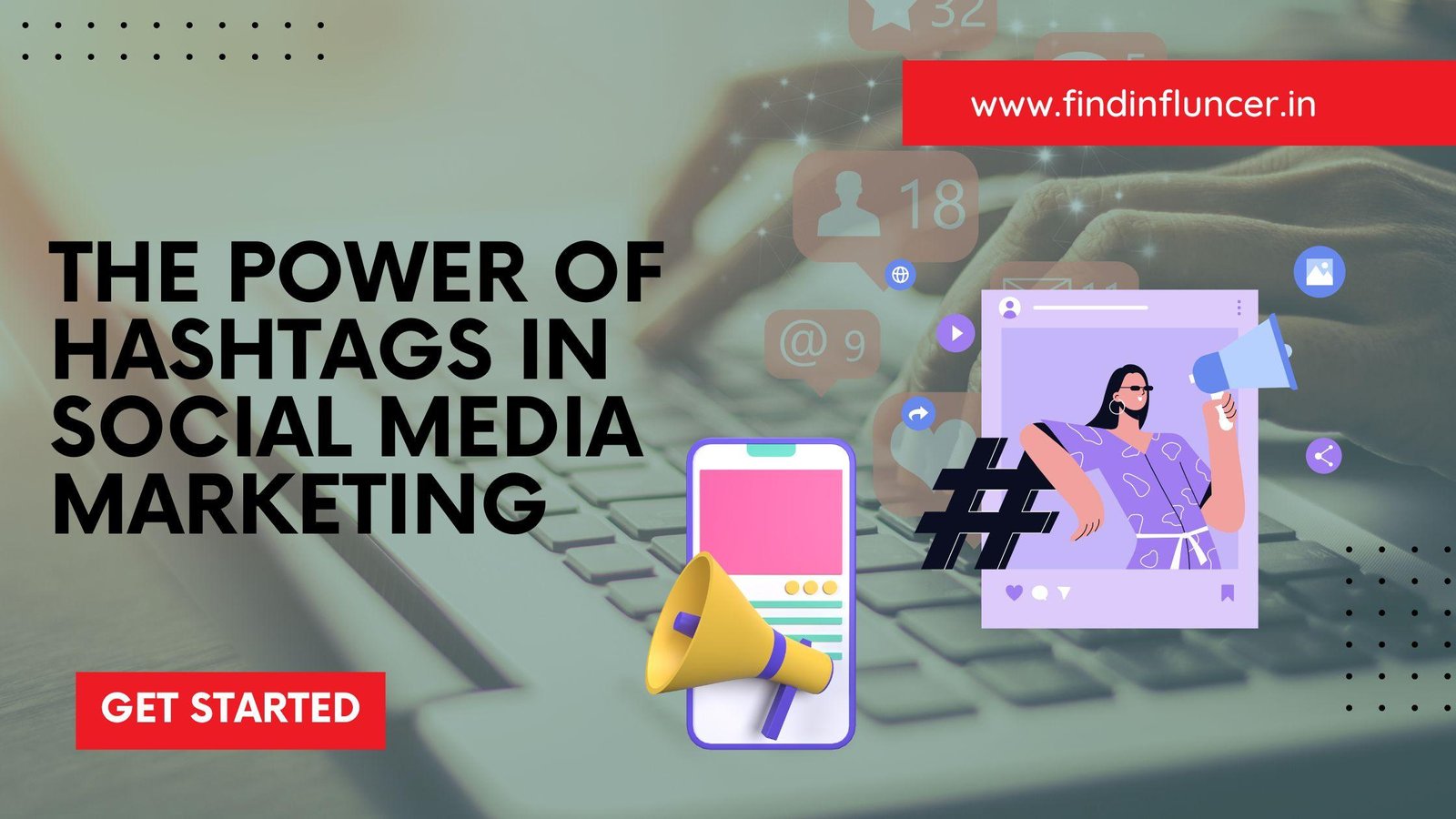
 Simran
SimranIn the constantly changing world of social media, hashtags have become powerful tools for increasing visibility, engagement, and brand recognition. When used strategically, hashtags can expand a brand's reach, connect with specific audiences, and stimulate meaningful conversations. This blog explores the importance of hashtags in social media marketing and how businesses can use them effectively to accomplish their marketing objectives.
Hashtags are keywords or phrases preceded by the "#" symbol, used to categorize range on social media platforms. They allow users to discover posts related to specific topics, making content easily searchable and accessible.
The concept of hashtags originated on Twitter in 2007 and has since spread to other platforms such as Instagram, Facebook, LinkedIn, and TikTok. Over the years, hashtags have evolved into a universal language that connects users across different social networks.
Hashtags significantly boost the visibility of social media posts. When users search for or click on a hashtag, they can discover content from a variety of users, including those they do not follow. This expanded reach allows brands to connect with a broader audience.
Posts with relevant hashtags tend to receive higher engagement rates, including likes, comments, and shares. Hashtags make it easier for users to find and interact with content that interests them, fostering more meaningful and active engagement.
Hashtags enable businesses to target specific audiences based on interests, demographics, and behaviors. By using industry-specific or niche hashtags, brands can reach users who are more likely to be interested in their products or services.
Branded hashtags help in building brand identity and recognition. Creating a unique hashtag for a campaign or product encourages users to participate in the conversation, increasing brand visibility and reinforcing brand messaging.
Branded Hashtags
These are unique to a company or campaign and are used to promote brand identity. Examples include Coca-Cola's #ShareACoke or Nike's #JustDoIt.
Industry Hashtags
These are related to specific industries or sectors and help businesses connect with users interested in those areas. Examples include #DigitalMarketing, #Fashion, or #Tech.
Trending Hashtags
These are popular hashtags at a given time, often related to current events, holidays, or viral trends. Using trending hashtags can help brands join larger conversations and increase their visibility.
Content Hashtags
These describe the content of the post and make it easier for users to find specific types of content. Examples include #TravelTips, #HealthyRecipes, or #DIYProjects.
Campaign Hashtags
These are created for specific marketing campaigns and help track the performance and engagement of the campaign. Examples include #IceBucketChallenge or #ThrowbackThursday.
Best Practices for Using Hashtags
Research and Relevance
Before using a hashtag, research its popularity and relevance to your target audience. Ensure that the hashtags you use are relevant to your content and resonate with your audience.
Balance and Moderation
While hashtags can increase visibility, overusing them can appear spammy. On platforms like Instagram, using 5-10 relevant hashtags is effective, while on Twitter, 1-2 hashtags are recommended.
Create Unique Branded Hashtags
Develop unique and memorable hashtags for your brand or campaign. Encourage your audience to use them in their posts to increase participation and brand visibility.
Track and Analyze Performance
Use social media analytics tools to track the performance of your hashtags. Analyze metrics such as reach, engagement, and user participation to understand the effectiveness of your hashtag strategy.
Encourage User-Generated Content
Involve your audience by encouraging them to create content using your branded hashtags. User-generated content not only increases engagement but also provides authentic endorsements for your brand.
Platform-Specific Hashtag Strategies
Instagram allows up to 30 hashtags per post, but it’s best to use a mix of popular, niche, and branded hashtags. Place them in the caption or comments to avoid cluttering the post.
Due to the character limit, use 1-2 relevant hashtags on Twitter. Focus on trending topics or industry-specific hashtags to increase visibility and engagement.
Hashtags are less commonly used on Facebook, but they can still be effective for categorizing content and joining larger conversations. Use 1-3 hashtags per post for optimal results.
Hashtags on LinkedIn help categorize professional content and increase its discoverability. Use 3-5 relevant hashtags to reach a professional audience.
TikTok
TikTok thrives on trends, so use trending hashtags to increase the visibility of your videos. Combine popular hashtags with niche and branded ones to reach a broader yet targeted audience.
Conclusion
Hashtags are powerful tools in social media marketing that can enhance visibility, engagement, and brand recognition. By understanding the different types of hashtags and implementing best practices, businesses can effectively leverage hashtags to connect with their audience, promote their brand, and achieve their marketing objectives. As social media continues to evolve, the strategic use of hashtags will remain a crucial element in the digital marketing toolkit, helping brands navigate the dynamic landscape of online engagement.

Findinfluencer.in is a influencer marketplace where influencers can get connect directly to business and get the sponsorship done. On the other hand, we also focus on our services and transparency so if a customer is giving a job to any influencer so they don't need to worry about their work and money. We always will be connected to our clients.
Powered By : Vini Tech
Copyright 2024 © Find Influencer All Rights Reserved, Developed By Themekarts
Findinfluencer.in is a influencer marketplace where influencers can get connect directly to business and get the sponsorship done. On the other hand, we also focus on our services and transparency so if a customer is giving a job to any influencer so they don't need to worry about their work and money. We always will be connected to our clients.